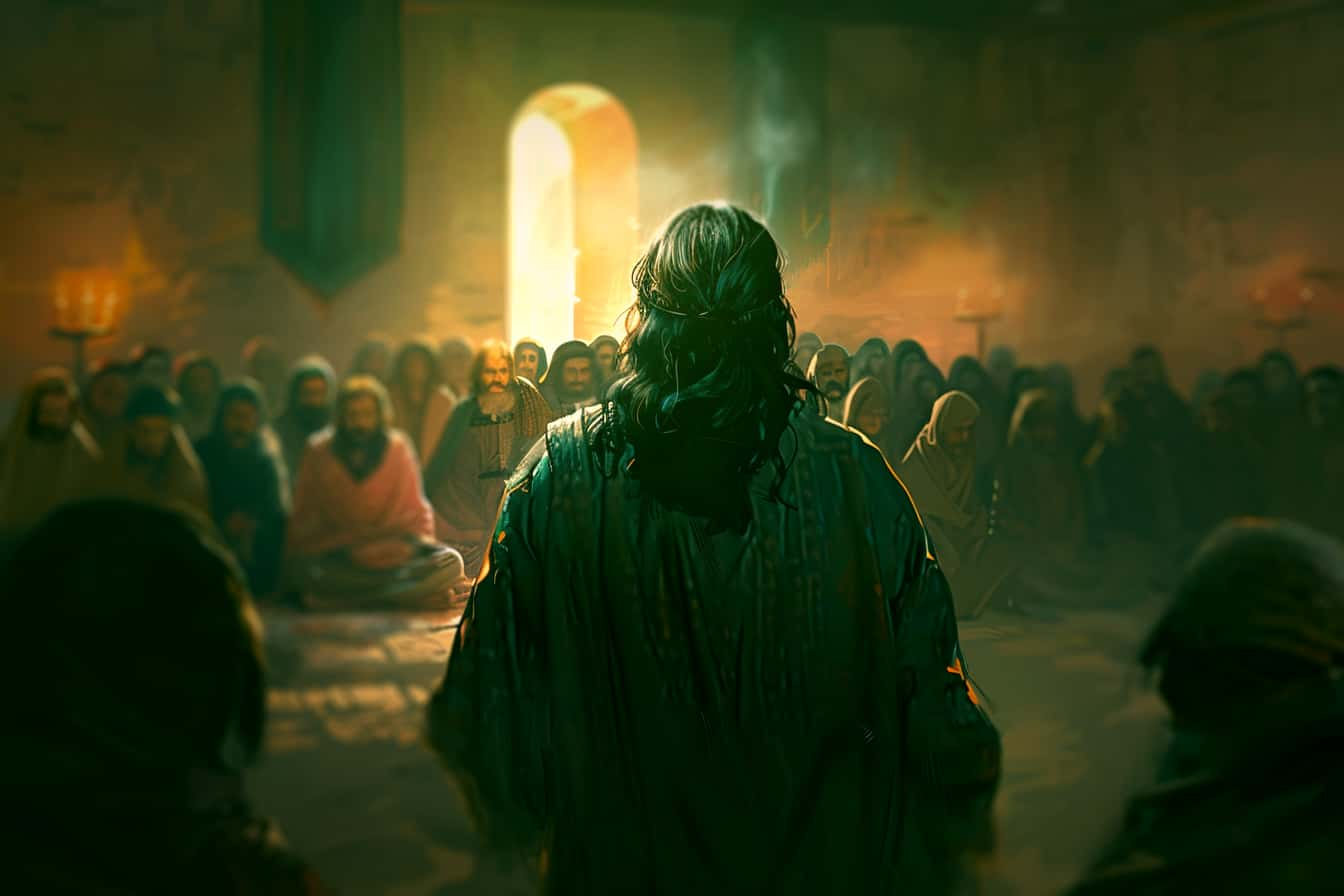Discover Jesus \ Events \Jesus' Discourse on Divine Forgiveness
Tag
Jesus' Discourse on Divine Forgiveness
Jesus taught that divine forgiveness is unconditional, not dependent on repentance. He likened God's forgiveness to a father's love, emphasizing that God forgives as freely as a loving parent without waiting for repentance.

Table of Contents
Summary
Two days after his triumphal entry into Jerusalem, Jesus set out to enter the great city again, taking Andrew, Peter, James, and John as companions. Along the way, they rested and visited.
It proved to be an opportunity for Jesus to teach the apostles about forgiveness. They knew that Jesus taught that the Father forgives without even being asked. But Peter asked him whether forgiveness came first or whether repentance was needed before forgiveness.
The Master then taught a lesson on forgiveness, touching on the Father’s infinite forgiveness for all of us and likening it to the love of an earthly father for his children. He clarified that the heavenly Father does not expect nor require repentance to activate his forgiving nature. He went on to counsel the apostles about their own understanding of forgiving each other as God forgives.
Jesus Teaches of the Father's Forgiveness
On Tuesday morning, April 4, 30 CE, just two days after his triumphal Palm Sunday entry into Jerusalem, Jesus set out to enter the great city again from the home of Simon, a citizen of Bethany, where he and the apostles had a temporary camp. He took Andrew, Peter, James, and John as companions this time. About halfway down the hill, Jesus stopped, and the group visited together.
It turned out to be a learning experience for the four apostles. They had some differences of opinion regarding some of the things that Jesus had taught them about forgiveness: Does forgiveness come first, or does repentance have to come before forgiveness? Peter said: "Master, James and I are not in accord regarding your teachings having to do with the forgiveness of sin. James claims you teach that the Father forgives us even before we ask him, and I maintain that repentance and confession must precede forgiveness. Which of us is right? What do you say?"
Jesus told them that they were still not seeing the heavenly Father clearly; not really understanding the bond of parental love between God and each of his children. He asked them to think about the love of an earthly father for his child and how willing good parents are to forgive their child, even if he or she does the wrong thing sometimes. In God, we have that kind of Father who is infinitely understanding. There is little that a child could do that a loving parent does not understand or forgive. His loving attitude towards his child prevents any kind of worry by the child that he might not be forgiven. The heavenly Father does not expect nor require repentance to activate his forgiving nature.
A part of a father's heart stays with his child forever. As a parent, he has special wisdom and understanding about caring for and guiding his child. He can see that his child is still growing and learning; he sees their immaturity and understands that children make mistakes. The Father’s sympathy for us is divine and infinite. When we make mistakes, he always forgives us because he knows everything and understands why we did what we did. It can’t be any other way; it is certain. Even God's justice is fair and kind and always includes mercy and love.
Wise parents love their children this way, even if they sometimes have serious differences. The loving parent is always willing to forgive. Sometimes, a child's feelings of guilt can create a divide between them and their parent, making it difficult for them to fully understand the depth of the parent-child relationship. But the Godly parent does not notice that. The parent is always supportive and welcoming to their child. Our sense of being sinful is not shared by God; our heavenly Father sees us only as his beloved child.
"Love is the outworking of the divine and inner urge of life. It is founded on understanding, nurtured by unselfish service, and perfected in wisdom."
Forgiving Each Other
If you strive to understand what motivates other people at their core, you will love them – even if they might have done wrong. For example, if you perceive that your brother’s wrongdoing may have been motivated by fear, it might be a window into reaching them with love and peace. We all have the capacity to do this; it is a God-like quality that we can cultivate. And if you love your brother or sister, you will forgive them.
If you’re having trouble forgiving someone, it might be helpful to look within and see where you can improve your willingness to cultivate an attitude of sympathy, understanding, and love for someone who has wronged you. If we carry resentments and hold on to visions of revenge, we can be certain that we have not yet grasped this idea of looking into the inner nature of another human being to find what motivated their offense. The more we cultivate this willingness to see our fellows with understanding sympathy, the quicker our feelings of resentment will subside, and our peace will be restored.
Jesus finished by saying: "Love is the outworking of the divine and inner urge of life. It is founded on understanding, nurtured by unselfish service, and perfected in wisdom."
